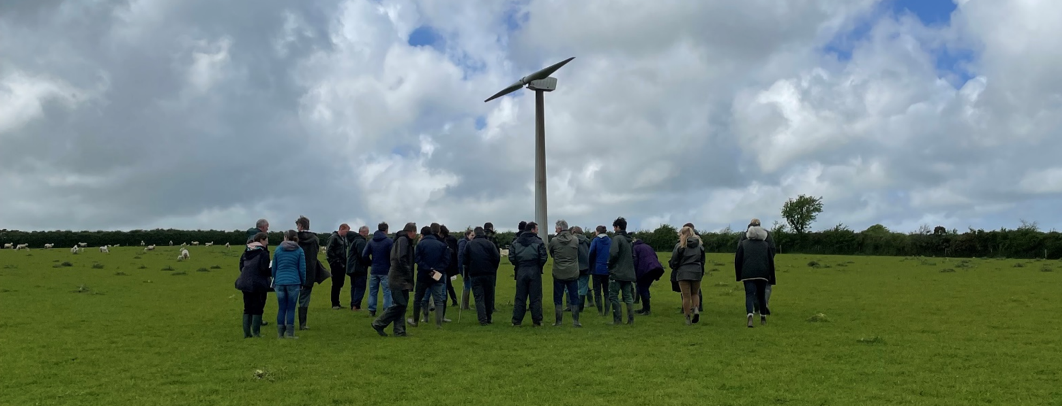
A Farm Net Zero event held at Matt and Pip Smiths Monitor Farm
Climate change is not just about greenhouse gases, it also includes the loss of biodiversity. Agriculture plays a key role in creating healthy ecosystems that support biodiversity and food production. Insect life is one of the main food sources in any ecosystem. Anthelmintics (wormers) used to treat gastrointestinal parasites are excreted in livestock dung and so can kill insects, particularly dung beetles, targeting the use of wormers reduces the risk of killing insects and helps to maintain a healthy ecosystem.
Farm Net Zero Monitor Farmers, Matt and Pip Smith of Trefranck run 1000 NZ Romney sheep and 500 Red deer across 400 acres of mostly owned land. Matt and Pip are selecting for resilience to parasitic worms in their stud flock. By combining Faecal Egg Counts (FECs) with lamb growth rates, they can decide which sheep are struggling to cope with a worm burden and which ones are growing at an acceptable rate despite having worms. Sheep with a high FEC and good growth rate are resilient to worms and therefore require fewer treatments. This reduces anthelmintic use and creates a healthier, more efficient flock.
Matt and Pip’s vet, Tim Bebbington of Castle Veterinary Group, gave an overview of the Sustainable Control of Parasites in Sheep (SCOPS) principles. These focus on targeting anthelmintic use to stock who need treatment, rather than blanket dosing all of them. Wormer should be applied at the correct dose for the weight of the animal and following a FEC to determine the type of parasite. This not only saves money on worm treatments but preserves the effectiveness of anthelmintics, so they can continue to treat parasite problems as they arise.

To tie the event together, entomologist Sally-Ann Spence of the Oxford Natural History Museum gave a fascinating talk on dung beetles and led a dung beetle hunt. The UK has many dung beetle species, with 50% of them under threat of extinction. Dung beetles play a crucial role in the farm ecosystem by starting the dung decomposition process. The rapid decomposition they trigger can remove habitat for gutworms, helping to reduce parasite burdens. Dung beetles can burrow up to a metre into the ground (where soil depth allows), aerating the soil and improving drainage. By incorporating organic matter into the soil, dung beetles can improve its fertility and trap carbon. Dung beetles will only colonise fresh dung, not farmyard manure or slurry, so it is important to have some stock out all year round if possible.
This event was made possible with thanks to the National Lottery Community Fund who fund the Farm Net Zero project.

